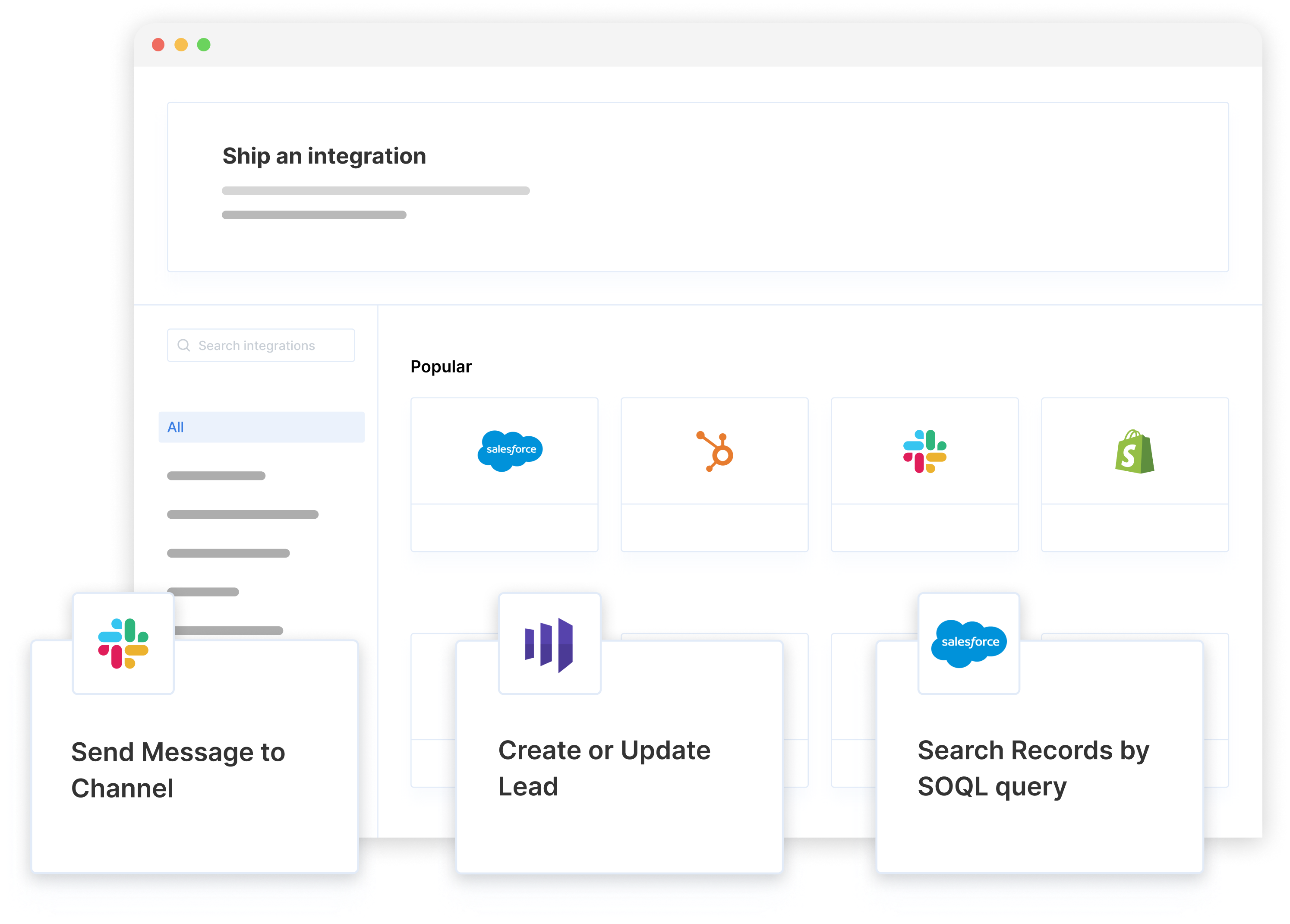Paragon, a startup building a platform that integrates and aggregates various software-as-a-service (SaaS) apps for enterprise clients, has raised $13 million in a series A round led by Inspired Capital, alongside previous investors FundersClub and Garuda Ventures. CEO and co-founder Brandon Foo said that the tranche will be put toward “scaling” and expanding Paragon’s team across the engineering and go-to-market teams.
Paragon, a part of Y Combinator’s winter 2020 cohort, is designed to allow software products to integrate with third-party apps without disrupting existing workflows. Companies can use the platform to build SaaS integrations into their products that are then provided to their end users, with features such as fully managed authentication and prebuilt integration interfaces.
Foo founded Paragon in 2019 with Ishmael Samuel, a former Uber engineer. Paragon is Foo’s second venture after Polymail, an email app focused on collaboration.
“While building Polymail, we had to spend months becoming experts in the different vendor-specific authentication methods, APIs, and documentation for every integration we built. It felt like we were reinventing the wheel every time. Yet customers kept asking for more integrations, which quickly made it impossible to keep up, let alone maintain all these integrations we’d built,” Foo told TechCrunch in an email interview. “I later realized that this is a problem that every SaaS company faces today. When Ishmael and I started Paragon, we sought to solve a never-ending problem we’d experienced firsthand as software developers.”
Foo says that Paragon currently supports around 45 prebuilt integrations with SaaS apps, including Salesforce, HubSpot, Slack and Shopify. Recently, the company launched an integration builder that allows customers to create their own custom integrations on Paragon with public SaaS APIs without needing to write code.

Image Credits: Paragon
Paragon offers two versions of its service: cloud-hosted and on-premise. Both store and manage end-user authentication credentials so that companies don’t have to manually build and maintain authentication for each app integration individually. They both also store integration data for logging and observability purposes.
“Software companies must offer integrations in order to stay competitive in the market — it has simply become an expectation of SaaS buyers … However, building integrations from scratch requires tremendous engineering resources — not to mention the work it takes to maintain integrations as SaaS APIs constantly change,” Foo said. “Paragon provides a simple, productized solution that abstracts the complexities of every SaaS integration into a single software development kit, which can be natively embedded in any product to provide a seamless end-user experience.”
Foo claims that Paragon is currently servicing about 100 million requests per month across its customer base. That’s an auspicious start, but the challenge will be maintaining growth as rival products emerge. While not tackling exactly the same problem, Pipedream offers an integration platform for building workflows and connecting cloud apps and services. With an eye toward financial applications, Stripe recently launched App Marketplace, a collection of scripts and tools incorporating third-party SaaS apps that work alongside Stripe’s payment processing.
Foo says, though, that the slowdown in tech has been unexpectedly fortuitous (minus the layoffs).
“It’s actually been an accelerant for Paragon, since engineering efficiency has become more crucial than ever before. Software companies need to do more with less, yet can’t afford to continue losing valuable deals by not meeting their customers’ integration requirements,” he said. “The top challenge Paragon solves for is engineering resources. To spend in-house engineering resources focused on external integrations takes valuable time away from building their core product.”
To date, Paragon has raised $16.5 million in capital.
